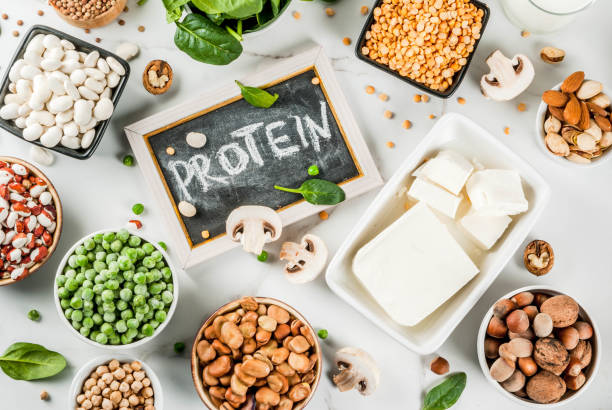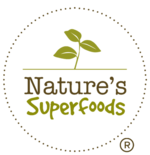-
No products in the cart.

The Do’s & Don’ts of Protein You Must Know

Protein aids in repairing and building parts of our body such as our body cells and tissues, organs, muscles, antibodies and hormones. It helps maintain muscle mass and strength to perform daily physical functions such as balancing and carrying items, especially as we age. Protein also helps in weight management.
For average Singaporean adults aged 18-49, the recommended daily protein intake is approximately 0.8g per kg of body weight. However, the daily recommended protein intake can be higher for people who live moderately active lifestyles or are older adults (50+). It should be coming in at 1.0-1.2g per kg of body weight instead. On average, adults aged 50 & above should consume approximately 50g to 60g of protein a day (depending on your body weight and lifestyle).
As you age, your body requires roughly 50% more protein than a younger adult to better preserve muscle mass and strength to maintain a certain quality of life. Benefits of having sufficient protein intake include an improvement of the body’s immune functions, faster muscle recovery from workouts, faster recovery from illnesses/surgeries, and better skin and hair health as the amino acids found in dietary protein are the building blocks of collagen, elastin and keratin- the structural components that make up healthy hair, skin and nails.
In this blog, we’ll cover the fundamentals of protein and we’ll also discuss the do’s and don’ts of protein.
Sources of Protein
Starting with the basics, let’s introduce you to the primary sources of protein.
- Almond (~23 pieces – 30g, 6g of protein)
- Peanut butter (1 tbsp – 25g, 7g of protein)
- Pulses – peas, beans, lentils (3/4 cup, 120g, cooked – 11g of protein)
- Egg (1 whole, 7g of protein)
- Tofu (2 small blocks – 150g, 8g of protein)
- Salmon (1 palm size – 100g, 24g of protein)
- Nature’s Superfoods Quinoa Seeds (1/2 cup dry – 80g, 11.5g of protein)
- Nature’s Superfoods PROATS (Protein + Oats) – 40g or 3-4 tablespoons, 12-15g of protein
- Nature’s Superfoods Plant Protein Powders (40g, 20g of protein)
- Nature’s Superfoods Proats (Protein + Oats) w/ Nutritional Yeast (40g, 12g of protein)
- CHIEF. Protein Collagen Bars (1 Bar, ~16g of protein)
- Nature’s Superfoods Sacha Inchi Seeds (~23 pieces – 27g, 8g of protein)
- Did you know that Sacha Inchi Seeds contain 33% more protein than Almonds?
Do’s and don’ts for Protein
In this segment, we’ll cover the dos and don’ts of protein you must know to include it in your diet in the right manner.
Do’s
Protein can be optimally obtained from natural food sources (particularly superfoods high in complete protein) rather than via supplementation. High-protein superfoods also boast nutrients that can promote absorption and provide more health benefits. For example,Quinoa is rich in Iron and B vitamins which are great for energy production and immune function. And Sacha Inchi Seeds, another complete protein source, is high in Omega 3 which has anti-inflammatory benefits.
Here are the do’s of protein you must keep in mind while including it in your diet.
- Choose quality protein sources. We recommend more plant-based protein sources. There’s no need to stick to only one food for your protein source each time.
- Have a mixture of animal and plant-based proteins as part of a balanced diet. For instance, Tofu, tempeh, edamame, Quinoa, and Sacha Inchi seeds.
- If you are a meat eater, choose fresh, lean meats instead of processed, preserved and fatty meats.
- If you are a vegan/vegetarian, you will need to consume a variety of protein sources to obtain all the necessary essential amino acids.
(note: only certain plant-based foods like Quinoa, Tofu, Buckwheat, Millet, Sacha Inchi Seeds, Chia Seeds, and Soybean contain all the essential amino acids and are complete protein sources).
Don’ts
A high-protein diet rich in natural plant protein sources carries much lesser risks of heart diseases or kidney stones as compared to animal protein sources. In addition, natural plant protein sources usually provide more health-benefiting nutrients such as more fibre, vitamins and minerals.
Focus on the following don’ts while you prepare a diet around protein.
- Don’t consume too much protein. Those who follow very high-protein diets have a higher risk of kidney stones.
- Maintain your protein intake. Too much protein can overwork the kidneys and lead to kidney damage conditions such as high protein levels in the urine.
- Eating lots of meats such as beef, poultry, and pork as part of a high-protein diet may also lead to a higher risk of heart disease. These meats generally contain high amounts of saturated fats as compared to plant protein sources.
- Excess protein consumed is usually stored as fat so it can lead to weight gain.
Can you consume too much protein?
The short answer is yes, especially if the individual is taking too much protein powder supplements (beyond recommended servings) or on a very-high-protein diet (e.g. Atkins diet).
How do you know if you are taking too much protein (usually in excess of 2g per kg of body weight)?
If you are taking too much protein you will experience some side effects and symptoms. These include indigestion, weight gain, unexplained exhaustion, constant urge to pee, bad breath, headache, constipation, etc.
Having too much protein can cause waste to build up in your blood. Your kidneys may not be able to remove all the extra waste, which can lead to kidney damage (a common condition here in Singapore).
Is protein deficiency possible?
Yes. One in two older adults (aged 50 & above) do not meet their protein requirements for their age in Singapore. This may be attributable to oral issues or chewing difficulties. To overcome this, mix things up with a softer diet of Quinoa Powder, PROATS, tofu, eggs and fish. You should also consider choosing daily food alternatives/staples that contain higher amounts of protein (e.g. Quinoa instead of white rice).
Who should consider a high-protein diet/protein supplements?
Malnourished individuals, the elderly, those who are unable to chew or swallow, and people with sarcopenia (age-related muscle loss). Athletes, bodybuilders, and pregnant women or mothers who are breastfeeding should also consider a high-protein diet.
The Bottom Line
Plant-based protein powders are a practical and efficient way to increase your daily protein consumption, especially for vegetarians and vegans. Look for high-quality sources of protein, such as pea, garbanzo, quinoa, chia seeds, sacha inchi seeds, and hemp protein, with few or no artificial flavors, colors, and other additives when choosing a plant-based protein powder. Remember to follow the do’s and don’ts we discussed in the blog to achieve a healthy and balanced diet. Lastly, consult a medical or diet expert before making a significant change in your diet or exercise routine.

